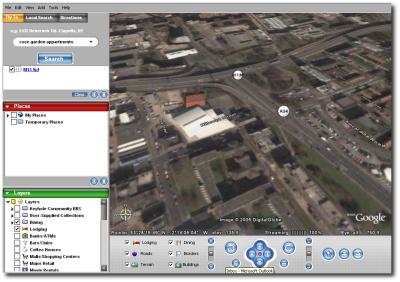
 F you listen closely, you can already some squeaks of anguish. Indeed, these are coming from Mr. Ballmer as oinks his way into a nearby office to break a chair. The prospective departure of Bill Gates has been made public, so the future of the company his jointly founded does not look bright.
F you listen closely, you can already some squeaks of anguish. Indeed, these are coming from Mr. Ballmer as oinks his way into a nearby office to break a chair. The prospective departure of Bill Gates has been made public, so the future of the company his jointly founded does not look bright.
Despite the many problems that Microsoft is facing, many are eager to stay with Windows and accept the Microsoft waiver (EULA). More recently, privacy of users, as well as rights, have been compromised. It’s high time people took a closer look at the truth behind licensing. Deplorable executives whose misuse of the law has reached new peaks are now beginning to depart. This includes Jim Allchin with a Vista status report that can make anyone gasp. Windows Vista is the result of just 6 months in development.
When Windows Vista finally comes out, Steve Ballmer will no longer be dancing like a ballerina. It is no longer the 90′s (alluding to the in/famous “monkey dance” scene). More likely than that, he will toss a chair with sheer fury, repulsed by the outcome, which is completely unacceptable.
So, what it is that can keep Windows in the game for a few more years? To name a few factors: (1) dependence on a vendor, which leads to exacerbating standards, or (2) unilateral deployment of new proprietary ones. Fortunately, Adobe resist the latter, as well as the former. Moreover, OpenDocument has recently become the one and only ISO standard.
There is yet another snag that will act as a barrier to Windows’ acceptance. Microsoft OneCare’s marketing campaign will have to bash Windows security in order to be sold. It is a necessary ‘component’ that fixes another already-broken product, which ironically enough, comes from the very same vendor.
But not all hope is lost. On the other hand, Linux is gaining steam on a daily basis. I no longer blog as often as I used to simply because I report Linux advocacy items elsewhere. Apart from more obvious advantages that are stability, Freedom, and security, Linux always leaves me wanting more as I know the options for extensibility are there. They just need to be understood and embraced. The Linux kernel is better wrought, yet Microsoft propaganda, trolls and marketing puppets deny it. Yes, for income.







 Filed under:
Filed under:  S recently as January this year, I proudly spoke about
S recently as January this year, I proudly spoke about  While my general opinion (and confidence in Palm) has not changed much, this morning I was a victim of data loss. This cost me about 3 hours, a loss of data that I cannot truly recover, and a huge headache (metaphorically-speaking, through distress). To describe the ordeal in brevity, I woke up to discover that my Palm’s battery was empty. I thought the unit was dead until I had it charged and could reset it. I could soon come to grips with the fact that my main, volatile memory was void (not ROM). I then realised that the batteries got emptied without any prior notification. I left the handheld in my trousers’ packet overnight, rather than dock it on the cradle as I usually do.
While my general opinion (and confidence in Palm) has not changed much, this morning I was a victim of data loss. This cost me about 3 hours, a loss of data that I cannot truly recover, and a huge headache (metaphorically-speaking, through distress). To describe the ordeal in brevity, I woke up to discover that my Palm’s battery was empty. I thought the unit was dead until I had it charged and could reset it. I could soon come to grips with the fact that my main, volatile memory was void (not ROM). I then realised that the batteries got emptied without any prior notification. I left the handheld in my trousers’ packet overnight, rather than dock it on the cradle as I usually do.

 F you listen closely, you can already some squeaks of anguish. Indeed, these are coming from Mr. Ballmer as oinks his way into a nearby office to break a chair. The prospective departure of Bill Gates has been made public, so the future of the company his jointly founded does not look bright.
F you listen closely, you can already some squeaks of anguish. Indeed, these are coming from Mr. Ballmer as oinks his way into a nearby office to break a chair. The prospective departure of Bill Gates has been made public, so the future of the company his jointly founded does not look bright.
 OOGLE Earth has been released for Linux (
OOGLE Earth has been released for Linux (
 ODAY I was reminded why, despite the fact that I never set my hands on Windows machines, they still manage to hinder my work. I was ready to upload experimental data to personal Webspace, in order to have it transferred to a colleague down in London. I was then faced with a hot red warning message saying that the large ZIP archive appeared to be a virus (merely based on file size and file type). Renaming the data file and changing its filetype would not help. I was forced to send to the entire lump of data (4 GB, yet compress) to a different computer and then FTP it, which is a really time-consuming PITA.
ODAY I was reminded why, despite the fact that I never set my hands on Windows machines, they still manage to hinder my work. I was ready to upload experimental data to personal Webspace, in order to have it transferred to a colleague down in London. I was then faced with a hot red warning message saying that the large ZIP archive appeared to be a virus (merely based on file size and file type). Renaming the data file and changing its filetype would not help. I was forced to send to the entire lump of data (4 GB, yet compress) to a different computer and then FTP it, which is a really time-consuming PITA. When I first joined this scene of academic research, I was somewhat surprised to reveal that genuine and original content (as opposed to gross re-use) is not only perceived as acceptable; it is sometimes encouraged, as a matter of fact. I was truly disappointed to come to grips with this mentality, wherein peers say that good text should better remain unchanged and in most cases evolve or have some fine, cosmethic changes applied. If further progress is made, it can be appended to the existing text. This robs many people out of artistic integrity, in my humble opinion. It also leads to duplication and repeatability, which can make us feel like parrots.
When I first joined this scene of academic research, I was somewhat surprised to reveal that genuine and original content (as opposed to gross re-use) is not only perceived as acceptable; it is sometimes encouraged, as a matter of fact. I was truly disappointed to come to grips with this mentality, wherein peers say that good text should better remain unchanged and in most cases evolve or have some fine, cosmethic changes applied. If further progress is made, it can be appended to the existing text. This robs many people out of artistic integrity, in my humble opinion. It also leads to duplication and repeatability, which can make us feel like parrots.